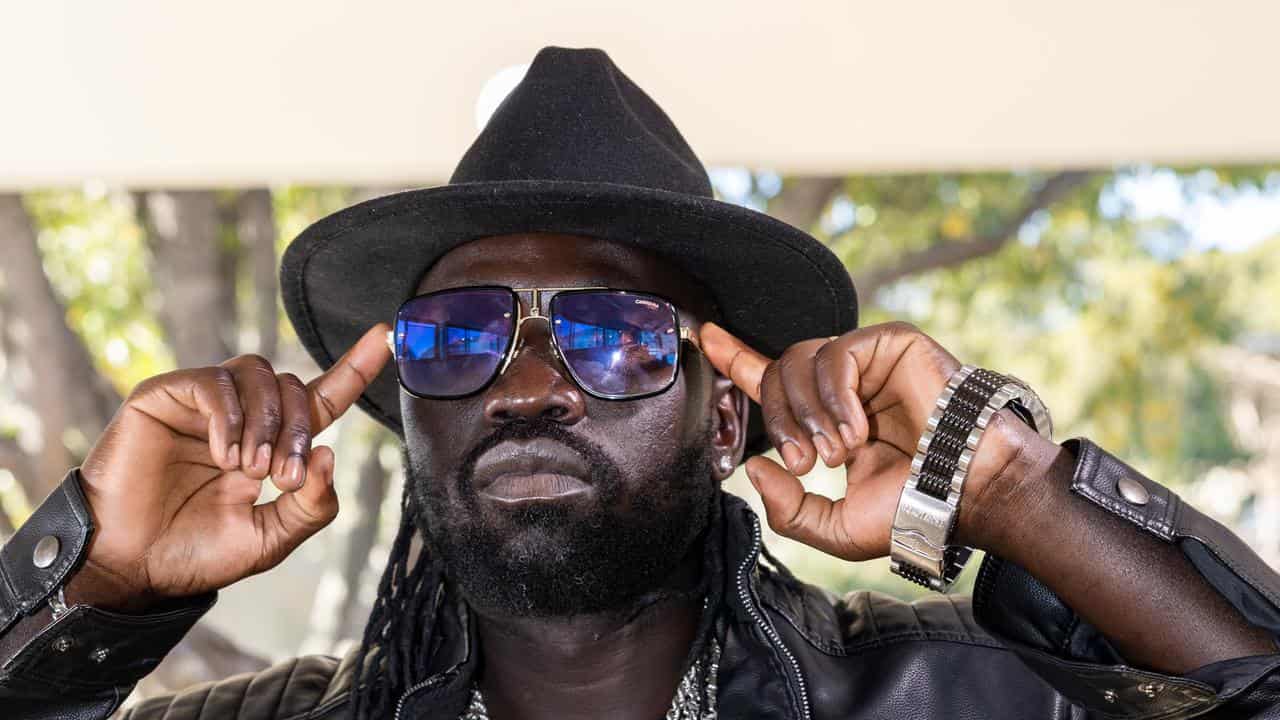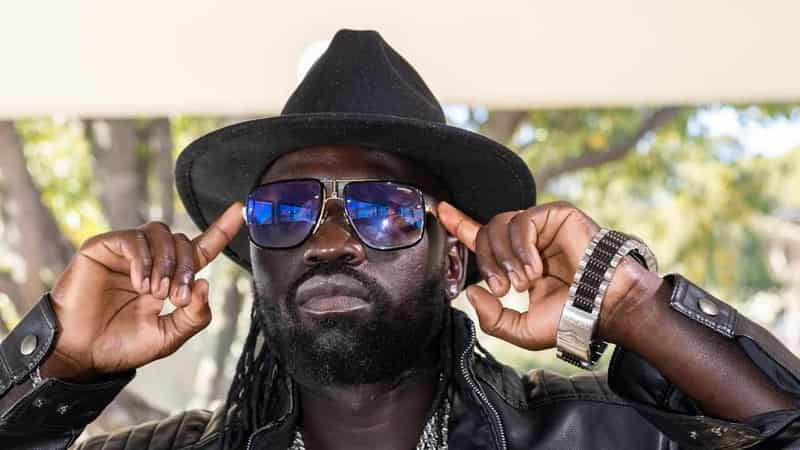
Okuta Jeremiah went from fleeing civil war in Sudan to a refugee camp in Uganda, before bursting on to the world stage as a dancehall artist.
He brought his musical talents to Australia, but the 35-year-old never forgets where he came from.
"The refugee experience taught me never to give up," Jeremiah told AAP.
"It gives me the ultimate reason to keep fighting because I have no choice until I see the light."
Forced to flee Sudan at the age of 10, he trekked across the border with his family to Uganda, where he spent six years in the Agojo refugee camp.
Jeremiah earned good academic grades at the camp and scored a prestigious boarding school scholarship, but he was unable to attend, so he instead turned to music.
The passion soon turned into a full-time career when he became part of East Africa's booming dancehall scene, touring with some of the continent's biggest stars.
Dancehall is a popular offshoot of reggae that originated in Jamaica in the 1970s, but has exploded in Africa in the past decade.
"Back home (in South Sudan) I am among the most celebrated artists - people treat me like a king," Jeremiah said with a swagger.
He said migrating to Australia had been a humbling experience.
"It has taught me a different way of life because I used to see everything through being a celebrity, but here you're just like any other person," Jeremiah said.
Jeremiah is performing at the Africultures Festival in Sydney on Saturday. He hopes to gain fans with songs such as Beledi Jemil (my country is beautiful), which celebrates South Sudan's tribal dances and lush nature.
Billed as Australia's largest African cultural gathering, the one-day festival is in its 15th year and will showcase everything from food to fashion and plenty of music.
Jeremiah, who lost his father at a young age, credits his artistic success to the never-say-die attitude of his mother, who raised eight children.
Beyond entertainment, Jeremiah sees his music as an advocacy tool.
"In a time when people are displaced around the world, have tribal differences and war, we use music to unify people and to give them hope," he said.









